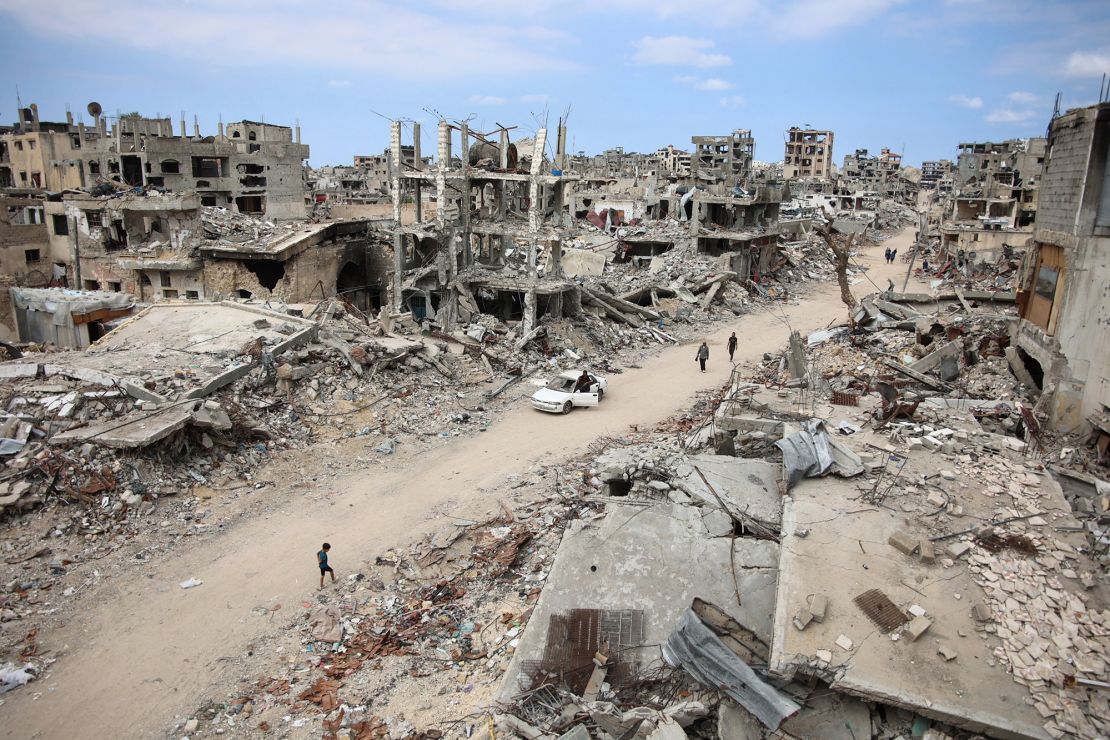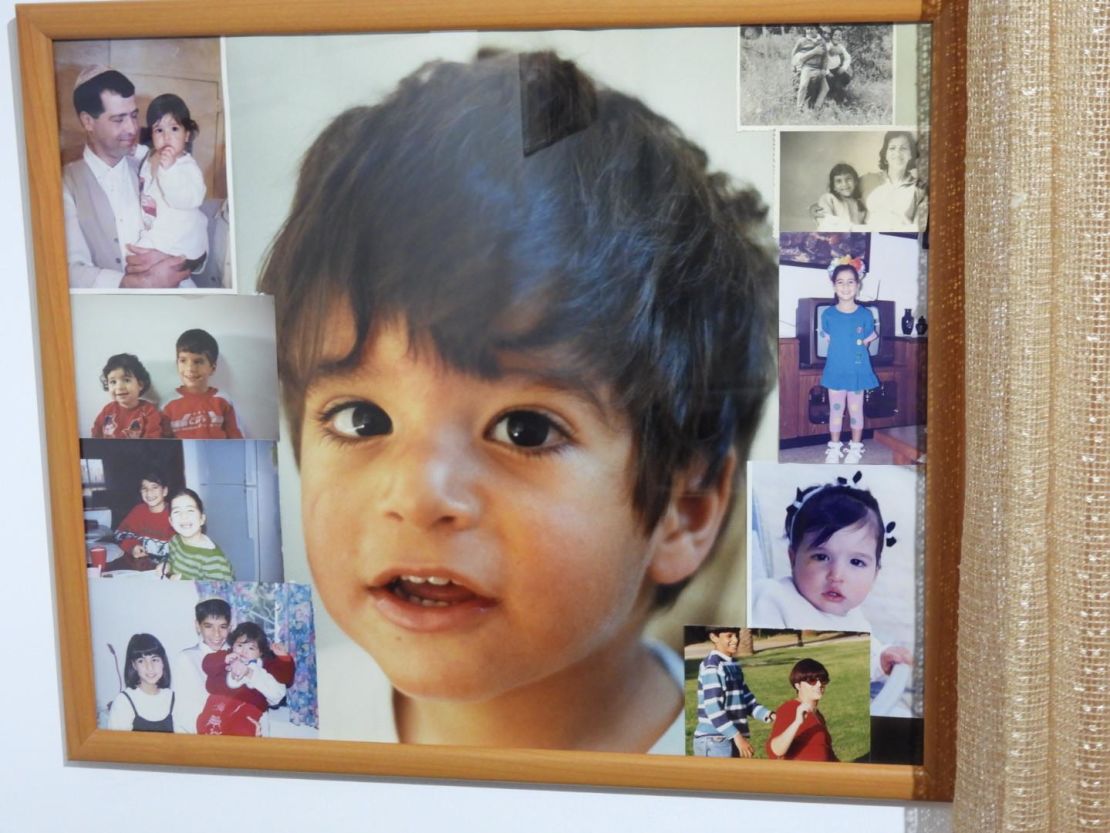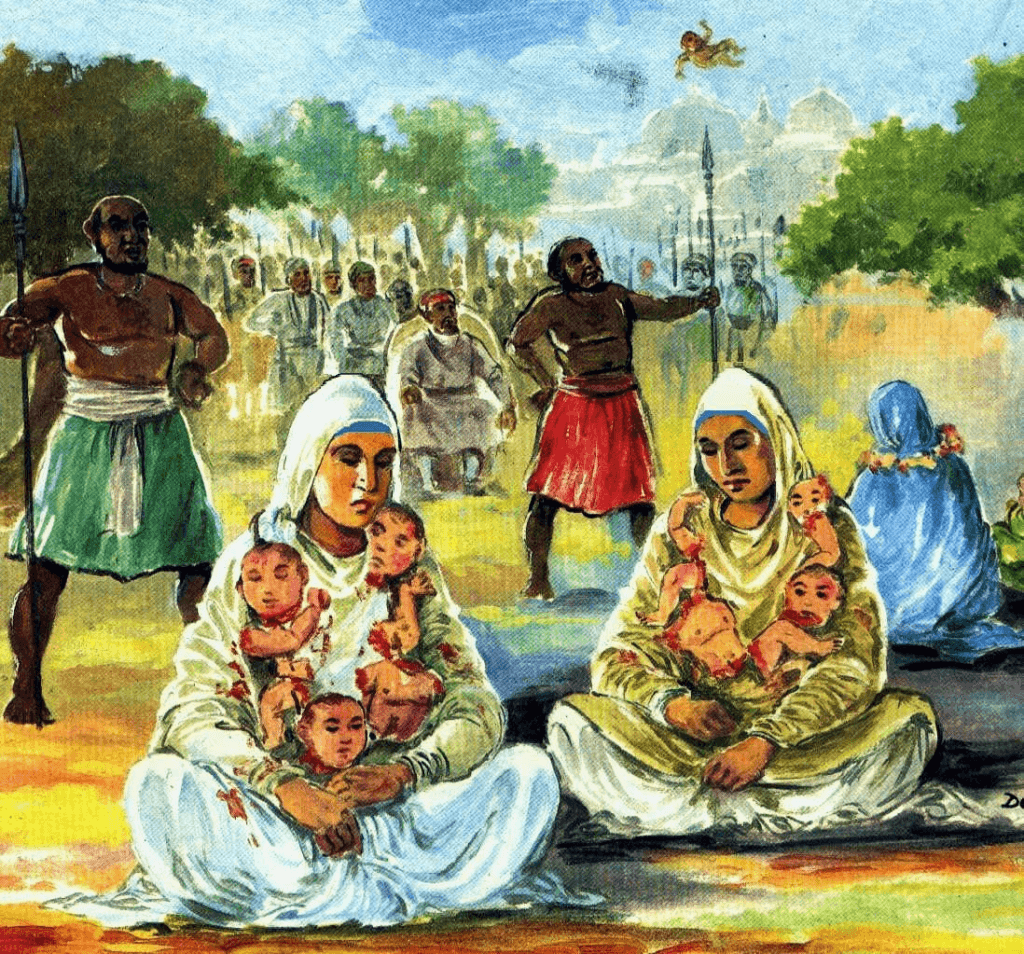Some here scream for the murder of babies, children, women and the elderly in fact everyone.
When a soldier does the righteous deed in protecting the civilians from invaders that is an entirely different level from those soldiers who kill babies, children, women and the elderly.They fail to realize that it will not be long before they themselves will have to face the Messenger of Death.
At the time they kill they would think that the Messenger of Death is a joke until they face one themselves.
You guys might think it is a joke but you will remember my words when the time comes.Then their screams of helpa helpa helpa will be of no use.
‘He got out of Gaza, but Gaza did not get out of him’: Israeli soldiers returning from war struggle with trauma and suicide
---- These are sad cases which through no fault of theirs -they were leading normal everyday family lifestyle until they were led and made to do these horrible murders by their leaders.
Tel Aviv and Ma’ale Adumim CNN —
A 40-year-old father of four, Eliran Mizrahi deployed to Gaza after the deadly Hamas-led attack on Israel on October 7, 2023.
The Israeli military reservist returned a different person, traumatized by what he had witnessed in the war against Hamas in the strip, his family told CNN. Six months after he was first sent to fight, he was struggling with post-traumatic stress disorder (PTSD) back at home. Before he was due to redeploy, he took his own life.
“He got out of Gaza, but Gaza did not get out of him. And he died after it, because of the post-trauma,” his mother, Jenny Mizrahi, said.
The Israeli military has said it is providing care for thousands of soldiers who are suffering from PTSD or mental illnesses caused by trauma during the war. It is unclear how many have taken their own lives, as the Israel Defense Forces (IDF) has not provided an official figure.
One year on, Israel’s war in Gaza has killed more than 42,000 people, according to the health ministry in the strip, with the United Nations reporting that most of the dead are women and children.
The war, launched after Hamas killed 1,200 people and took more than 250 hostage, is already Israel’s longest since the Jewish state was established. And as it now expands to Lebanon, some soldiers say they dread being drafted into yet another conflict.
“A lot of us are very scared of getting drafted again to a war in Lebanon,” an IDF medic who served four months in Gaza told CNN, speaking on condition of anonymity due to the sensitivity of the matter. “A lot of us don’t trust the government right now.”
Israeli authorities – with rare exceptions – have closed off Gaza to foreign journalists unless under IDF escort, making it difficult to capture the full extent of Palestinian suffering or the experiences of soldiers there. Israeli soldiers who fought in the enclave told CNN they witnessed horrors the outside world can never truly comprehend. Their accounts offer a rare glimpse into the brutality of what critics have called Israeli Prime Minister Benjamin Netanyahu’s “forever war,” and the intangible toll it takes on the soldiers who participate.
For many soldiers, the war in Gaza is a fight for Israel’s survival and must be won by any means. But the battle is also taking a mental toll that, due to stigma, is largely hidden from view. Interviews with Israeli soldiers, a medic, and the family of Mizrahi, the reservist who took his own life, provide a window into the psychological burden that the war is casting on Israeli society.
The mental health toll
Mizrahi deployed to Gaza on October 8 last year and was tasked with driving a D-9 bulldozer, a 62-ton armored vehicle that can withstand bullets and explosives.He was a civilian for most of his life, working as a manager at an Israeli construction company. After witnessing the massacres committed by Hamas, he felt the need to fight, Jenny told CNN.
The reservist spent 186 days in the enclave until he sustained injuries to his knee, followed by hearing damage in February when a rocket-propelled grenade (RPG) struck his vehicle, his family said. He was pulled out of Gaza for treatment, and in April was diagnosed with PTSD, receiving weekly talk therapy.
His treatment did not help.
“They didn’t know how to treat them (soldiers),” Jenny, who lives in the Israeli Ma’ale Adumim settlement, in the occupied West Bank, said. “They (soldiers) said the war was so different. They saw things that were never seen in Israel.”
When Mizrahi was on leave, he suffered from bouts of anger, sweating, insomnia and social withdrawal, his family said. He told his family that only those who were in Gaza with him could understand what he was going through.
“He always said, no one will understand what I saw,” his sister, Shir, told CNN.
Jenny wondered if her son killed someone and couldn’t handle it.
“He saw a lot of people die. Maybe he even killed someone. (But) we don’t teach our children to do things like this,” she said. “So, when he did this, something like this, maybe it was a shock for him.”
Guy Zaken, Mizrahi’s friend and co-driver of the bulldozer, provided further insight into their experience in Gaza. “We saw very, very, very difficult things,” Zaken told CNN. “Things that are difficult to accept.”
The former soldier has spoken publicly about the psychological trauma endured by Israeli troops in Gaza. In a testimony to the Knesset, Israel’s parliament, in June, Zaken said that on many occasions, soldiers had to “run over terrorists, dead and alive, in the hundreds.”
“Everything squirts out,” he added.
Zaken says he can no longer eat meat, as it reminds him of the gruesome scenes he witnessed from his bulldozer in Gaza, and struggles to sleep at night, the sound of explosions ringing in his head.
“When you see a lot of meat outside, and blood… both ours and theirs (Hamas), then it really affects you when you eat,” he told CNN, referring to bodies as “meat.”






